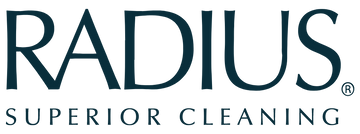Eco-friendly concepts, like reducing non-renewable energy, recycling, solar panels, and ‘going green’ are (thankfully) part of our common vernacular. The limits are now being pushed beyond the basics. Companies are committed. Activists are loud. Buyers are showing up and speaking with their wallets.
More than 1,500 companies have pledged to have zero emissions. Governments are pledging spending for clean energy research by the likes of $400 billion in US spending and 500 billion euros for renewable hydrogen. A major shift is happening, and it’s because systematic, far-reaching change is necessary NOW.
The good news is that anyone can join in. You already make an impact every day by what you eat, how you travel, what you buy at the store, what you throw away, how long you leave the faucet running while you brush your teeth, and more.
Here are some of the top trends to watch in sustainable, earth-kind actions and product development.
1. UPCYCLING
One man’s trash is another man’s treasure, right? It’s true now more than ever. Across so many industries from fashion to furniture this year will really kick into gear the idea of taking from the huge amounts of waste and reimagining them as new products, like shoes, swimsuits, and toothbrushes. It’s like giving new life to old things, and it’s a creative, refreshing twist we love.
RADIUS® is 100% in on this trend in a big way with upcycled materials and innovative manufacturing used in The Source™ Brush. These are some of the materials used in the sustainable, Forever™ Brush concept with replaceable heads:
- Soda Pop Bottles (post-consumer waste put to good use)
- Hemp Fiber (reused excess from hemp production all over the USA)
- Maple Wood Shavings (byproducts from the production of cut lumber and cabinetry)
- Cornstarch (will break down in compost and landfills faster)
2. PLANT-BASED DIETS
It’s easier on the planet to produce foods in a plant-based diet compared to an animal-based diet. Less fossil fuels used, less water used, and less land used = more sustainable. Because of the rate of available livestock, fish, and poultry, and the resources required to maintain, feed, and process them, meat-based diets are not sustainable.
By replacing meat with vegetarian sources of protein, like nuts, seeds, and beans, we can reduce carbon and other greenhouse gas emissions. You’ve probably heard of #meatlessmonday or the hugely popular Veganuary that surprised industries in 2021.
They say 580,000 people signed up from 209 countries. Of those people willing to change their diet, 21% say they did it for environmental reasons.

3. PROPER PRODUCT PACKAGING
We don’t even want to give the P word any coverage here, but product packaging that does not contain plastic is a huge focus from companies big and small, and we’re only going to see more of it this year (it’s about time!).
To say that packaging waste is out of hand is an understatement. The absolute best way to combat this problem is to stop making and buying products who’s packaging relies on traditional plastic.
Compostable bags, bio-plastics, glass containers, and less packaging in general are all concepts on the rise all with the goal to reduce single-use plastics that are filling our landfills and oceans at alarming rates.
RADIUS is on a mission to use alternative additives, sustainable processes, and landfill-biodegradable resins in every way and in every product possible. We work hard towards our goal to have the resins we use to make our products biodegradable. EcoPure® is a game-changing additive that makes RADIUS toothbrushes and travel cases landfill-biodegradable at a faster rate when disposed of properly.
4. CLIMATE POSITIVE
First there was carbon neutral, but 2021 ushers in the era of pushing that even farther to being climate positive. To achieve this new level also known as carbon offsetting, not only would your product create zero carbon emissions, it would need to actually remove carbon from the atmosphere.
IKEA and Microsoft are two big names putting lofty climate positive goals out there. That’s going above and beyond - and it’s fantastic.

5. WOMEN-LED BUSINESSES
The time is here for women to take a lead role in running businesses that change the world. Women are creating products that are kind to the planet, and people are noticing.
Research shows that women are skilled at collaboration and balancing multiple interests to solve multi-faced problems. Female scientists, entrepreneurs, and activists are putting their stamp on sustainability.
RADIUS is proud to be led by a woman. Saskia Foley is the daughter of the RADIUS founder. She’s now the owner of the nature-inspired family business and leads the way to sustainable products that are good for your mouth and good for the planet.

6. RECONNECTING WITH NATURE
While it’s not a new concept to be in tune with nature, there’s been a swell of self-care and connectedness that involves a greater appreciation of nature.
Did you notice how blue the skys were when we all stayed in our homes in 2020 instead of polluting the air with automotive and transit exhaust?
Did you breathe fresh air more often and realize how good it is for your soul to take care of houseplants, to work in the garden, or take long walks? It’s heightened people’s realization that the Earth is a beautiful place that needs protecting.

RADIUS is truly centered around nature. We only have one world, and we believe in helping keep it clean, beautiful, and healthy. Ingredients in RADIUS toothpaste (for kids, adults, and pets!) and floss are organic, like chamomile flower extract, aloe vera leaf juice, peppermint oil, coconut fruit powder, and sunflower seed oil.
These are only a handful of the sustainability trends making waves this year. There are more ways, so many ways, to make positive steps away from depleting the planet’s resources. We at RADIUS work every day to make every day better. There’s more work to be done by companies, by creators, by consumers, and by you.




